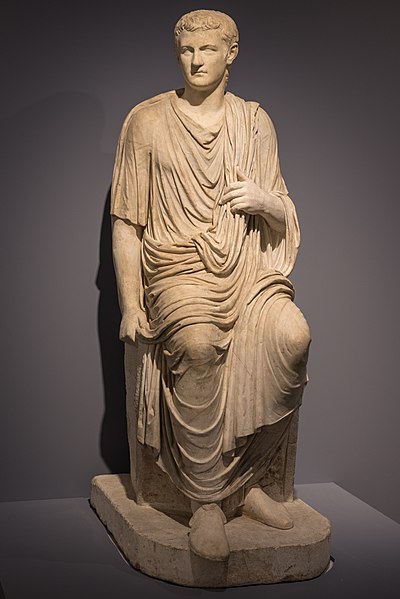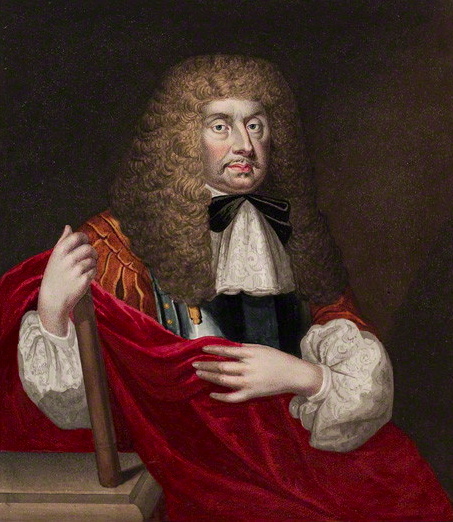This article explores significant historical events that took place on March 18th, spanning breakthroughs in science and technology, pivotal political shifts, cultural achievements, and notable moments in global history.
From the first spacewalk to the establishment of major companies, each event showcases human innovation, the struggle for power and freedom, and the development of societal norms.
These moments provide a glimpse into the diverse tapestry of human history, reflecting on how each event has shaped the world we live in today.
March 18th Events in History
37 AD – Roman Emperor Caligula accepts the titles of the Principate, bestowed upon him by the Senate
Gaius Caesar Augustus Germanicus, known as Caligula, became the Roman Emperor in 37 AD after the death of his great-uncle and adoptive grandfather Tiberius.
The Senate conferred upon him the titles of the Principate, effectively acknowledging his status as the first citizen of the state. Caligula’s reign is remembered for its initial popularity but soon became infamous for financial extravagance, accusations of insanity, and personal tyranny.
Also Read: March 17 – On this Day in History
His acceptance of these titles marked the beginning of a brief, though dramatic, era in Roman history, which would end with his assassination in 41 AD.

1229 – Frederick II, Holy Roman Emperor, declares himself King of Jerusalem during the Sixth Crusade
During the Sixth Crusade, Frederick II, Holy Roman Emperor, managed to negotiate a peace treaty with Al-Kamil, the Sultan of Egypt, allowing Christians to regain control of Jerusalem, Nazareth, and Bethlehem without any military conflict.
Also Read: March 19th Events in History
Frederick declared himself King of Jerusalem on March 18, 1229, though his claim was controversial because he was not present during the key negotiations and because of his excommunication by Pope Gregory IX.
His coronation in Jerusalem marked a significant, albeit temporary, achievement in the Crusader quest to maintain a foothold in the Holy Land.
1314 – Jacques de Molay, the 23rd and last Grand Master of the Knights Templar, is burned at the stake
Jacques de Molay was the 23rd and last Grand Master of the Knights Templar, a medieval Catholic military order. On March 18, 1314, he was burned at the stake in Paris on the Île aux Juifs, accused of heresy, among other charges.
The trial and execution of de Molay were part of a broader campaign by Philip IV of France to disband the Templars and seize their considerable assets. His death marked the end of the Templar Order, which had been instrumental in the Crusades and was known for its military prowess and financial acumen.
1438 – Albert II of Habsburg becomes Holy Roman Emperor
Albert II of Habsburg, who had already been King of Hungary and Bohemia, was elected Holy Roman Emperor in 1438. His accession to the throne was a testament to the growing power of the Habsburg dynasty in European politics.
Although his reign as emperor was brief—he died in 1439—it marked the beginning of Habsburg dominance in the Holy Roman Empire, which would continue for centuries. Albert’s election highlighted the shifting alliances and the political landscape of Europe in the 15th century.

1673 – John Berkeley sells his part of New Jersey to the Quakers
Sir John Berkeley, one of the English proprietors of the New Jersey colony, sold his share of the land to the Quakers in 1673.
This transaction was significant in the early settlement of the American colonies, particularly for the Quaker movement, which sought a place for religious freedom and self-governance away from the Anglican Church’s persecution in England.
The area became a haven for Quakers and other religious groups, promoting a diverse community that was somewhat unique among the English colonies. This sale contributed to the establishment of West Jersey as a distinct entity, which later played a key role in the development of New Jersey’s state identity.
1766 – American Revolution: The British Parliament repeals the Stamp Act
The Stamp Act of 1765 was a direct tax imposed by the British Parliament specifically on the colonies of British America. The Act required that many printed materials in the colonies be produced on stamped paper produced in London, carrying an embossed revenue stamp.
This was part of Britain’s strategy to recover from the financial debts incurred during the Seven Years’ War. However, the Act faced vehement opposition and protests within the American colonies, under the rallying cry of “no taxation without representation.”
The colonial resistance was so strong that it led to the repeal of the Stamp Act on March 18, 1766, marking a significant victory for colonial opposition and sowing the seeds for the future
1834 – Six farm labourers from Tolpuddle, Dorset, England are sentenced to be transported to Australia for forming a trade union
The Tolpuddle Martyrs were six farm laborers from the village of Tolpuddle in Dorset, England, who were arrested for forming a trade union to protest against decreasing wages.
In 1834, they were convicted under an obscure law from 1797 against taking secret oaths and were sentenced to transportation to Australia.
Their harsh sentences sparked an enormous public outcry and led to one of the first successful political campaigns in British history. The government eventually pardoned and freed the men, who became symbols of the labor movement and the struggle for workers’ rights.
1850 – American Express is founded by Henry Wells and William Fargo
American Express was founded by Henry Wells and William Fargo, who were also pioneers of the express mail business in the United States. On March 18, 1850, they established American Express as a freight forwarding company in Buffalo, New York.
The company quickly evolved beyond mail and freight forwarding to financial services, introducing money orders in 1882 and traveler’s cheques in 1891. American Express has since become a global service company, offering a wide range of financial products and services.
1871 – Declaration of the Paris Commune; President of the French Republic, Adolphe Thiers, orders the evacuation of Paris
Following France’s defeat in the Franco-Prussian War and the capture of Napoleon III, Paris was besieged, leading to severe shortages and social unrest.
On March 18, 1871, after the French government attempted to disarm the National Guard of Paris, the city’s workers and soldiers established the Paris Commune, aiming to govern Paris independently from the conservative French government.
The Commune implemented several progressive policies during its short existence but was violently suppressed by the French army during the “Bloody Week” in May 1871. The Paris Commune is remembered as one of the first instances of workers seizing political power and remains a significant event in the history of socialist movements.
1893 – Former Governor General Lord Stanley pledges to donate a silver challenge cup
Governor General of Canada, Lord Stanley of Preston, attended a hockey game at the 1889 Winter Carnival in Montreal and was impressed by the sport. In 1892, he decided to donate a silver cup to be awarded to the best hockey team in Canada, which he followed through with in 1893.
Originally known as the Dominion Hockey Challenge Cup, it quickly became known as the Stanley Cup. The trophy was initially intended to be a challenge cup, which teams could win and hold until they were defeated by another team.
Over the years, the Stanley Cup has evolved into the championship trophy of the National Hockey League (NHL), awarded annually to the playoff champion, and is one of the oldest and most prestigious awards in professional sports.
1906 – Traian Vuia flies a heavier-than-air aircraft for 20 meters at 1 meter altitude
On March 18, 1906, Romanian inventor and aviation pioneer Traian Vuia made a significant breakthrough in the quest for powered flight by successfully flying a heavier-than-air aircraft.
His aircraft, named Vuia I, lifted off the ground for a short flight, traveling about 24 meters (about 79 feet) at Montesson near Paris, France. T
his event is noteworthy because Vuia’s aircraft was entirely self-propelled and took off under its own power without the assistance of external launch mechanisms, distinguishing his achievement from earlier glides.
Vuia’s experiments contributed to the understanding and development of aviation technology, demonstrating the potential for powered, sustained flight.

1913 – King George I of Greece is assassinated in the recently liberated city of Thessaloniki
King George I of Greece was assassinated on March 18, 1913, in Thessaloniki, a city that had been recently liberated during the First Balkan War. George had been king since 1863 and was walking near the White Tower when he was shot by Alexandros Schinas, a Greek anarchist.
His death brought an end to a reign that saw Greece’s territory and international prestige significantly expanded. He was succeeded by his son, Constantine I.
George I’s assassination marked a turbulent period in Greek history, which would see the country involved in a series of military conflicts and political changes in the following years.
1922 – In India, Mahatma Gandhi is sentenced to six years in prison for civil disobedience
On March 18, 1922, Mahatma Gandhi, the leader of the Indian independence movement against British rule, was sentenced to six years in prison for sedition. This was due to his role in promoting non-cooperation with the British government, including advocating for non-violent resistance and civil disobedience.
Gandhi’s arrest and subsequent trial drew international attention to the Indian independence movement and highlighted the repressive measures used by the British to maintain control over India.
Gandhi was released from prison after serving two years due to health reasons, and he continued to play a pivotal role in India’s quest for independence, which was finally achieved in 1947.
1937 – The New London School explosion in New London, Texas, kills 300 people, mostly children
The New London School explosion occurred on March 18, 1937, in New London, Texas, and is one of the deadliest school disasters in American history.
A natural gas leak caused an explosion that destroyed the London School of New London, killing an estimated 300 people, most of whom were children. The catastrophe led to widespread changes in industrial and school safety standards, including laws requiring the odorization of natural gas so that leaks can be detected more easily.
The disaster profoundly affected the community and led to improvements in safety protocols to prevent similar tragedies.
1940 – World War II: Axis powers Adolf Hitler and Benito Mussolini meet at the Brenner Pass in the Alps and agree to form an alliance against France and the United Kingdom
On March 18, 1940, during World War II, leaders of the Axis powers, Adolf Hitler of Nazi Germany and Benito Mussolini of Fascist Italy, met at the Brenner Pass, a mountain pass through the Alps along the border between Italy and Austria.
This meeting was crucial as it solidified the alliance between Germany and Italy, with both leaders agreeing to cooperate against France and the United Kingdom.
The Brenner Pass meeting underscored the strategic and military planning between the two nations, which would have significant implications for the course of the war in Europe, particularly in terms of opening a new front in the Mediterranean and North Africa.
1959 – President Dwight D. Eisenhower signs a bill into law allowing for Hawaiian statehood, which would become official on August 21
On March 18, 1959, President Dwight D. Eisenhower signed the Hawaii Admission Act, which allowed for Hawaiian statehood, an action that would officially make Hawaii the 50th state of the United States on August 21, 1959.
This event was the culmination of a long process that began in the mid-19th century with the economic and strategic interests of the U.S. in the Hawaiian Islands. The road to statehood was marked by significant political and social changes within Hawaii, including the overthrow of the Kingdom of Hawaii in 1893 and its annexation by the U.S. in 1898.
The inclusion of Hawaii as a state represented a critical moment in American history, highlighting the nation’s expanding influence in the Pacific and the diversity of its territories.
1965 – Cosmonaut Alexei Leonov leaves his spacecraft Voskhod 2 for 12 minutes, becoming the first person to walk in space
Soviet cosmonaut Alexei Leonov made history on March 18, 1965, by becoming the first person to conduct a spacewalk. Exiting his spacecraft, Voskhod 2, for 12 minutes, Leonov ventured into the vacuum of space attached only by a tether.
This extravehicular activity (EVA) demonstrated the feasibility of humans performing tasks outside their spacecraft, marking a significant milestone in the space race between the United States and the Soviet Union.
Leonov’s spacewalk, though fraught with challenges, including a suit that inflated too much, allowing him barely to re-enter the spacecraft, underscored the potential for human exploration beyond the confines of a spaceship.
1970 – Lon Nol ousts Prince Norodom Sihanouk of Cambodia
On March 18, 1970, while Prince Norodom Sihanouk was abroad, Prime Minister Lon Nol and the National Assembly of Cambodia voted to depose him, marking a pivotal moment in Cambodian history. T
his coup set the stage for the Cambodian Civil War by polarizing the population and providing the communist Khmer Rouge, led by Pol Pot, a significant increase in support.
The removal of Sihanouk led to a radical change in the nation’s political landscape, eventually contributing to the tragic events of the Khmer Rouge regime, which resulted in the deaths of millions of Cambodians.
1990 – In the largest art theft in US history, 12 paintings, collectively worth around $500 million, are stolen from the Isabella Stewart Gardner Museum in Boston
In the early hours of March 18, 1990, two men dressed as police officers executed the largest art theft in U.S. history at the Isabella Stewart Gardner Museum in Boston. The thieves stole 13 works of art valued at approximately $500 million, including pieces by Vermeer, Rembrandt, Degas, and Manet.
Despite ongoing investigations, none of the artworks have been recovered, and the case remains one of the world’s most infamous unsolved art thefts. The heist not only represented a significant loss to the art world but also highlighted issues of security and the challenges of protecting cultural heritage.
2005 – The social networking site Twitter is launched, becoming one of the largest platforms for social media
Twitter, a social networking service, was launched on March 18, 2005, by Jack Dorsey, Biz Stone, and Evan Williams. Initially conceived as a platform for individuals to send short, 140-character messages called “tweets,” Twitter rapidly evolved into a global platform for public communication and real-time news.
Its simplicity and immediacy struck a chord with users worldwide, transforming the way people share information, mobilize for causes, and communicate in the digital age.
Twitter’s impact on social interaction, media, politics, and activism underscores its role as a pivotal platform in the internet era, facilitating a unique blend of personal and public communication.
